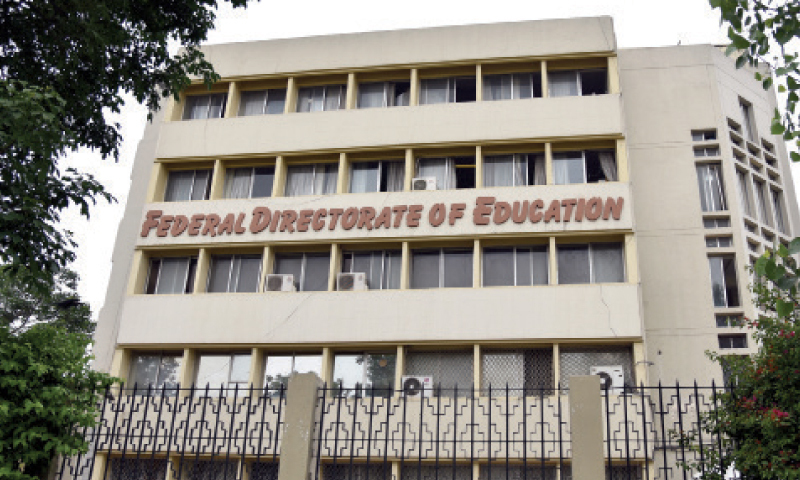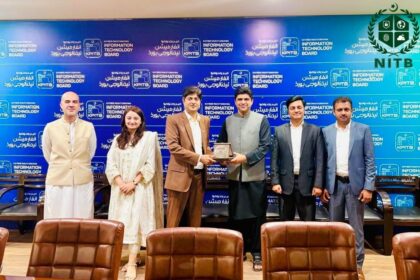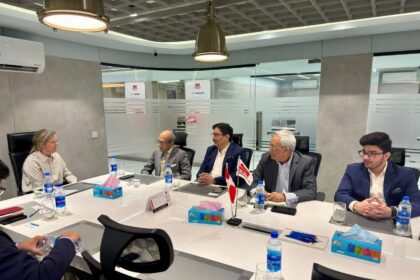**FDE Briefs Parliament on Education Reforms, Faces Tough Questions Over Cambridge Curriculum and Management Gaps**
The Federal Directorate of Education (FDE) outlined its ongoing reforms and achievements to the National Assembly’s Standing Committee on Federal Education, unveiling advancements in technology, vocational training, and student welfare programs. However, the session also saw pointed criticism from lawmakers over the planned introduction of the Cambridge curriculum in public colleges and longstanding delays in appointing a permanent Director General.
Presenting a comprehensive snapshot of FDE’s current status, Director General Junaid reported that the authority oversees 432 educational institutions across Islamabad Capital Territory, with a total student population of 237,938. These institutions range from primary schools to degree colleges, staffed by 13,774 personnel, including over 9,400 teachers.
Addressing budgetary matters, the DG noted that FDE’s total allocation for the upcoming fiscal year stands at PKR 24.123 billion. Of this, PKR 21.596 billion is designated for operating educational institutions, PKR 1.010 billion for headquarters, and PKR 1.517 billion for development under the Public Sector Development Programme (PSDP)—a notable reduction from the previous year’s development budget.
The briefing detailed several key reform initiatives. FDE has developed a new character education curriculum with the Rehmatul-lil-Alameen Authority and is piloting financial literacy and entrepreneurship modules in collaboration with the Rupani Foundation. Teachers in 100 schools have already been trained on a new life skills-based curriculum, and 17 vocational skill labs have been set up to offer hands-on training in trades such as plumbing and stitching. Additionally, a centralized Digital Learning Hub will soon allow expert teachers to deliver real-time lectures to more than 100 IT labs, a move expected to address teacher shortages in science subjects, particularly in rural areas. The Ministry of IT has also pledged to connect all FDE schools to fiber optics by the end of 2025.
On the health and nutrition front, FDE now provides school meals to 56,000 students in 195 schools, and an eye screening campaign has evaluated 200,000 children. Moreover, a de-worming drive has reached 125,000 students, and mental health support is being scaled up through new app-based services and plans to hire psychologists.
Despite these positive steps, members of the parliamentary committee raised serious concerns. There were questions about the accuracy of enrollment figures, referencing a past case of “ghost students,” which the DG attributed to administrative lapses rather than fraud. More heated debate centered on FDE’s proposal to introduce the Cambridge curriculum in four public colleges. Lawmakers, including committee chairperson and member Shazia Marri, argued that this shift could undermine Pakistan’s national education boards and widen socio-economic divides, urging FDE to invest in uplifting the existing FSC and HSSC systems instead. The DG defended the initiative, stating it would offer broader access to globally recognized qualifications for students unable to afford private Cambridge schools, and emphasized that the program would remain selective.
Infrastructure improvement in rural schools was another topic, with the DG reporting that renovations are near completion in 76 schools while new classroom construction is ongoing.
The committee also raised the issue of administrative instability, noting that the Director General’s role has been filled on an acting basis since last year due to court proceedings stemming from a contested appointment. The current DG acknowledged the disruption and confirmed that the situation remains unresolved in court.
In conclusion, while lawmakers expressed appreciation for FDE’s advances in technology, health, and vocational training, they called for the development of clear national curriculum policies and the swift resolution of key administrative appointments to ensure sustainable progress in the capital’s education sector.











